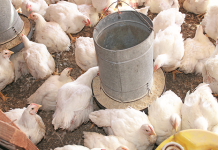A recent meeting of the African Farmers’ Association of South Africa (Afasa) at the St George’s Hotel in Kempton Park was far more significant than it might have appeared to an outsider. This was the first planning commission of the association’s women and youth desks, and large numbers of young people had come together to receive the baton from their elders and push for changes in agriculture.
It was an occasion that gave me much hope. For years, we’ve complained about the fact that agriculture has failed to attract youngsters. But today, the youngsters were meeting to say: “We will make the sector attractive to other young people like us”. The late Victor Moagi, former chairperson of Nerpo and a farmer in North West, would often say that the time had come for young people to take over in agriculture.
“We are tired of fighting this battle. Young people with energy and stamina need to take over,” was one of his refrains.
It was heartening to see these young men and women answering his call, and a pity he was not there to witness it. Afasa president Mike Mlengana has echoed Moagi’s sentiments, and believes strongly that women and youth have a pivotal role to play in agriculture.
Young members of Afasa have already been tasked with generating ideas on what needs to be done to capacitate youth and women to be future leaders in the sector, what support mechanisms are required to ensure their participation, and what opportunities are available for youth and women in agriculture.
No instant answers
As much as all this is good news, we should guard against believing we have found a magic solution. The challenges to agriculture remain. Among these are low profit margins, labour and, particularly, land issues. The only thing that is happening is that, to use soccer parlance, we are bringing on fresh legs to carry on the fight. We have to remember that the same ministers of agriculture and land reform are still in office. And by the looks of things, this is not going to change for a while.
This adds another challenge for the youth – trying to solve problems that have existed for years and have become almost entrenched. They will need to come up with highly creative ideas and a great deal of energy to produce effective solutions.
One of the fundamental mistakes they should avoid is to degenerate into expensive talk shops. This happened years ago when the Women in Agriculture and Rural Development (Ward) and Youth in Agriculture and Rural Development (Yard) were launched during Lulu Xingwana’s term as minister of Agriculture and Land Affairs.
I can recall little that these organisations achieved apart from attending expensive conferences at luxury hotels. I sincerely hope that today’s youngsters will chart a different course. The agricultural sector is in greater need of sensible, pragmatic and selfless leadership than ever before. This cannot happen unless today’s youngsters get fully involved and lay a solid foundation. It is encouraging that quite a number seem ready to do so.












